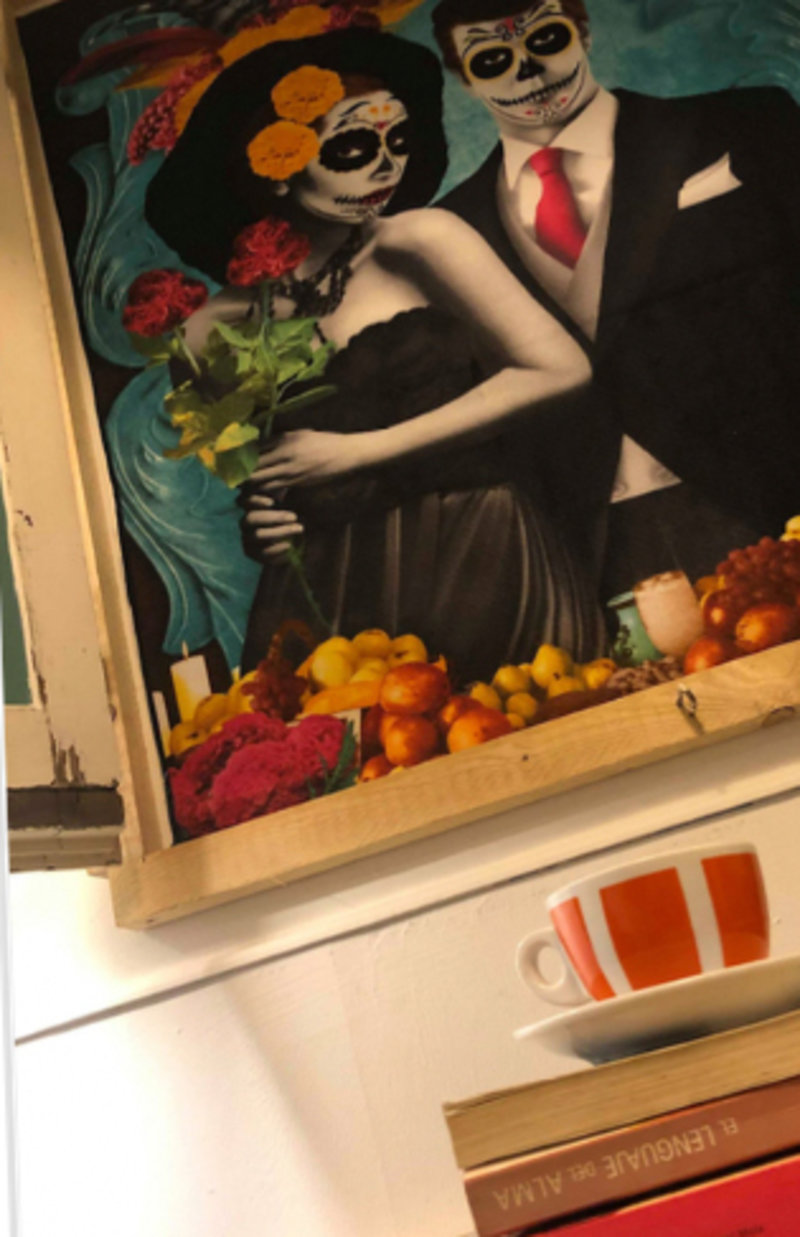News
Jordi Abad Lalanza
Death Cafés
W
hat do you think is the most important thing people should know about Death Cafes?
They are informal gatherings where we talk about death related topics. It is a space of complete trust. It’s non-therapeutic and we let our thoughts and emotions flow.
. This year is the tenth anniversary of Death Cafes at an international level, with the first one in London. How many have been held in Catalonia and when did they start?
It is my personal initiative. I started in February 2019 and we had 12 meetings up to March 2020, when we stopped due to the pandemic. Subsequently, I have held 7 more virtual meetings.
Why did you decide to organise these meetings?
My personal story is that I’ve had several losses that have marked my vision of life and death. From 2007 to 2015, I’ve been attending oncology patients at the end of life in their homes. Then in 2015 I finished my Social Worker studies and later I did a Masters in palliative care. I am currently working in end of life care. My major concern is that this society does not talk about death. It’s a taboo and I want to break this taboo, inviting people to do that.
What kind of people come to death cafes and for what reasons?
Usually the average age is 40 and up, but we have also had young people. There are many reasons, mainly just curiosity, but also there’s interest in talking about death and not being judged for it. It’s not a grief management group, but people find that they’re respected with the freedom to talk about death and everything related to it.
How do you run your cafes?
As an organiser, you should have questions or topics prepared to be presented. That makes the session more dynamic. The role of the moderator is to ensure that the conversation is safe and that everyone can participate, and the most important thing is to never be judged for your thoughts or emotions.
At last count there have been 13,099 Death Cafes in 80 countries, why do you think they have been so popular?
There is always an interest in everything to do with death, as the last taboo. It is true that in British and American culture, these encounters are easier. In Mediterranean culture I think there is much more reticence.
One attendee at a meeting in the US said that “most of the sessions are full of people laughing and having fun... You meet strangers and talk about an intimate topic that most people can’t even talk about with their family.” Do the meetings in Catalonia actually include fun?
There are moments of everything, of attentive listening, of seriousness, but there can also be moments of humour and positive expression. People also enjoy themselves and share joy as well as funny situations about death.
In a broader context, what do you think have been the impacts of the pandemic on bereavement, grief and funerals, and the effect of these changes on mental health and well-being?
I think that not being able to say the usual goodbyes to our loved ones will make grieving more complicated to manage. Death has been visualised, but in the end if it hasn’t happened to you, it will be statistics. I think it affects our mental health and wellbeing, but I think society penalises people who have suffered a loss and bereavement will be poorly managed.
Do you think there’s really such a thing as the much-talked-about “closure” after death? Is a good death possible?
A good death is how you want it to happen, so it is important to think, talk and write down how you want it to be if the time comes (advance directives). It’s a very personal thing and can be confusing but for me it’s being able to be with my loved ones, to have them respect my decisions, to have control of the situation and to be able to leave with everything spoken about and with a lot of love. There is never closure if we truly have love for that person. At the beginning it is an intense pain but as time goes by, this person remains in our memory, not with pain but with gratitude for having known and enjoyed him or her.
Leave a comment
Sign in.
Sign in if you are already a verified reader.
I want to become verified reader.
To leave comments on the website you must be a verified reader.
Note: To leave comments on the website you must be a verified reader and accept the conditions of use.

